March 26, 2020 — for some, it was the beginning of the end.
But for others, it was a new beginning which has led them to a better life.
This week marks the fifth anniversary of New Zealand’s first Covid-19 Alert Level 4 lockdown, which forced families to stay at home and isolate to avoid spreading the virus.
The lockdown remained in place from March 26, 2020 until April 27, when some lockdown restrictions were partially lifted.
But it was not until May 13 that the alert level went down to level 2 and people could move about freely again, as long as they maintained physical distancing and gathering size-limits.
John Macdonald likened the lockdown to being a giant "hammer blow" for the hospitality industry.
It sent many cafes, bars and restaurants out of business, and he did not know whether it was good fortune or just plain luck, that his restaurant Craft Bar and Kitchen has managed to stay open.
Mr Macdonald said it was a traumatising time for him and other hospitality business owners.
"I don't like thinking about, even now."
He said the first thing that went through his mind when the lockdown was announced was, "how long will it go on for"?
"You can imagine, a restaurant or a business of my size holds quite a deal of stock, first and foremost, and what were we to do with it all?
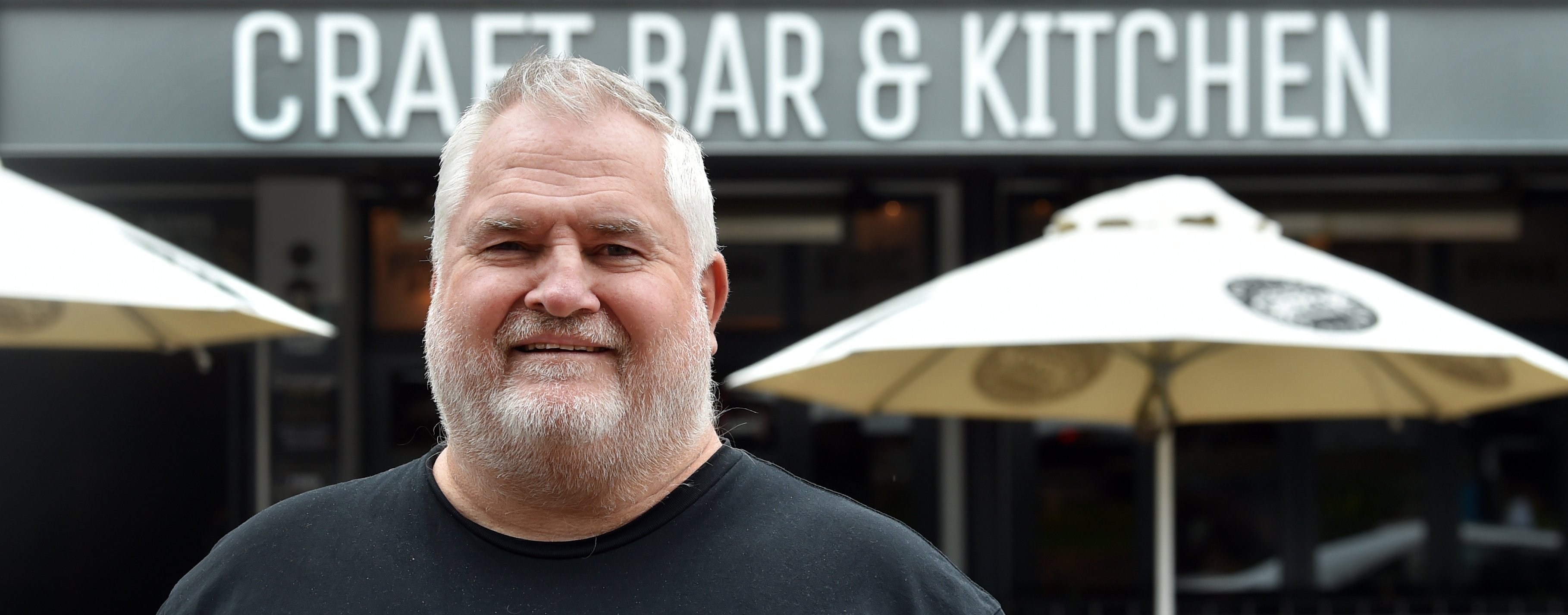
"We had to give it all away, and all our keg product was wasted because it sat there for months.
"I had to continue to pay rent, I had to continue to pay rates, I had to pay electricity, and I had no income whatsoever.
"And then I had to try to find a way to pay our staff, because we all needed to retain our staff."
He said he had more than 20 staff, but some were travellers, and they left the country to return home before the borders closed.
That helped because it meant he didn’t have to lay off any staff, he said.
When the hospitality industry was eventually able to reopen, he said there were so many restrictions that it was impossible to make money.
"We were only allowed to let 50 people into the whole venue, and that went on for quite some time.
"The restrictions were very prohibitive and very costly.
"So the whole thing was a hammer blow for the hospitality industry.
"We came pretty close to closing down."
He said he was fortunate in that he had saved "a lot of my hard-earned income" over the years for a rainy day.
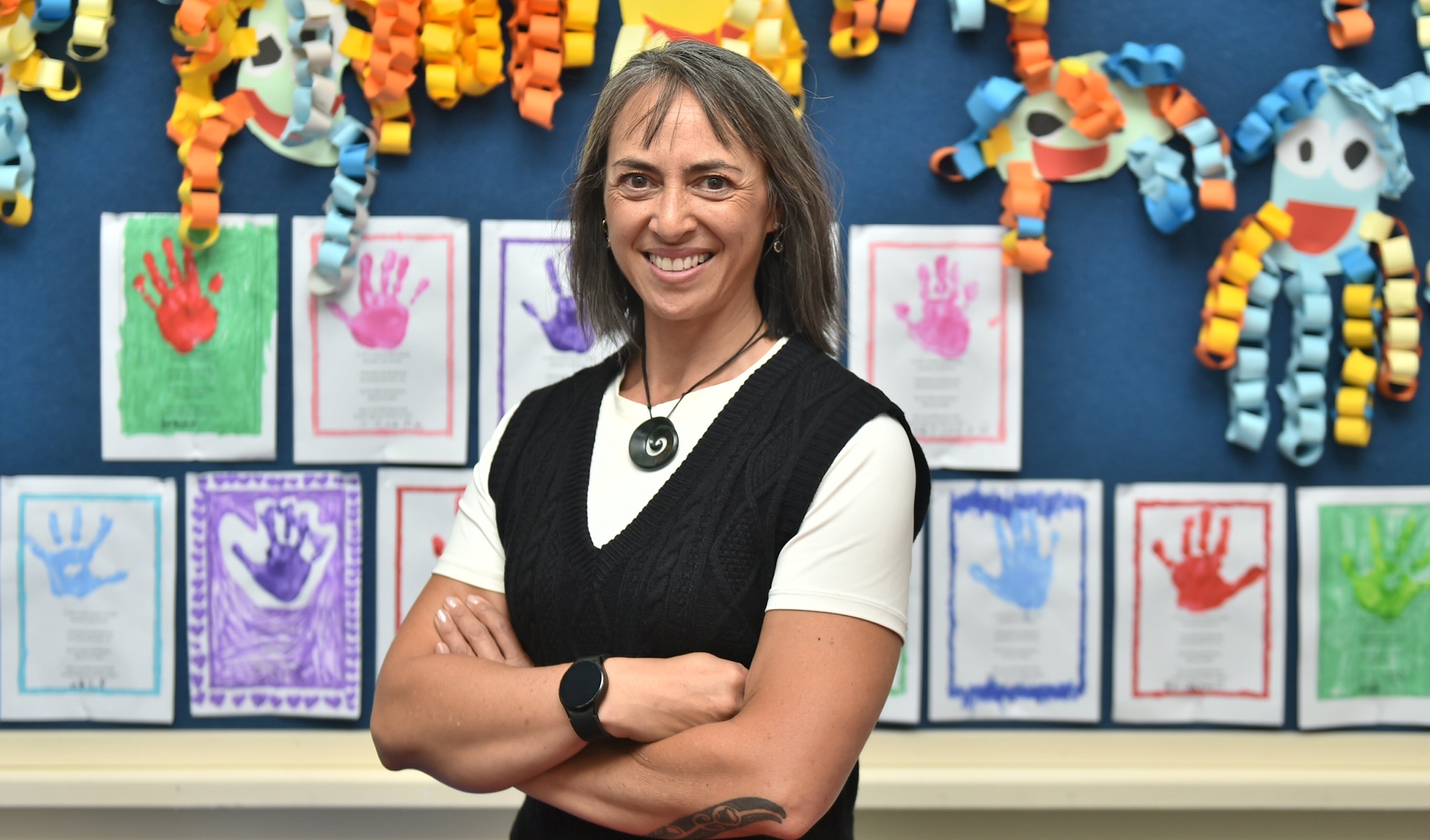
"The government provided a wage subsidy, but that didn't cover all the wages by any stretch of the imagination.
"And the other monies that they provided — there was a couple of grants that we were able to get — I paid back."
Mr Macdonald believed the hospitality industry was one of the industries that was hit the hardest.
"It's fair to say a lot of businesses just couldn't cope with that — and they did close.
"A lot have come back and tried to make a go of it, and have struggled ever since.
"I don't know if I feel lucky.
"I've survived. I'm still here, but there was nothing lucky about it for hospitality really."
He said the only reason he was still in business was because he was persistent.
"I've been in the industry a long time, and I didn't want some virus that we had no control over or couldn't do anything about, to be the reason why I ended up not being in business any longer.
"I wasn't ready to finish.
"I was determined to try and build my business back up, and even that's been very, very difficult.
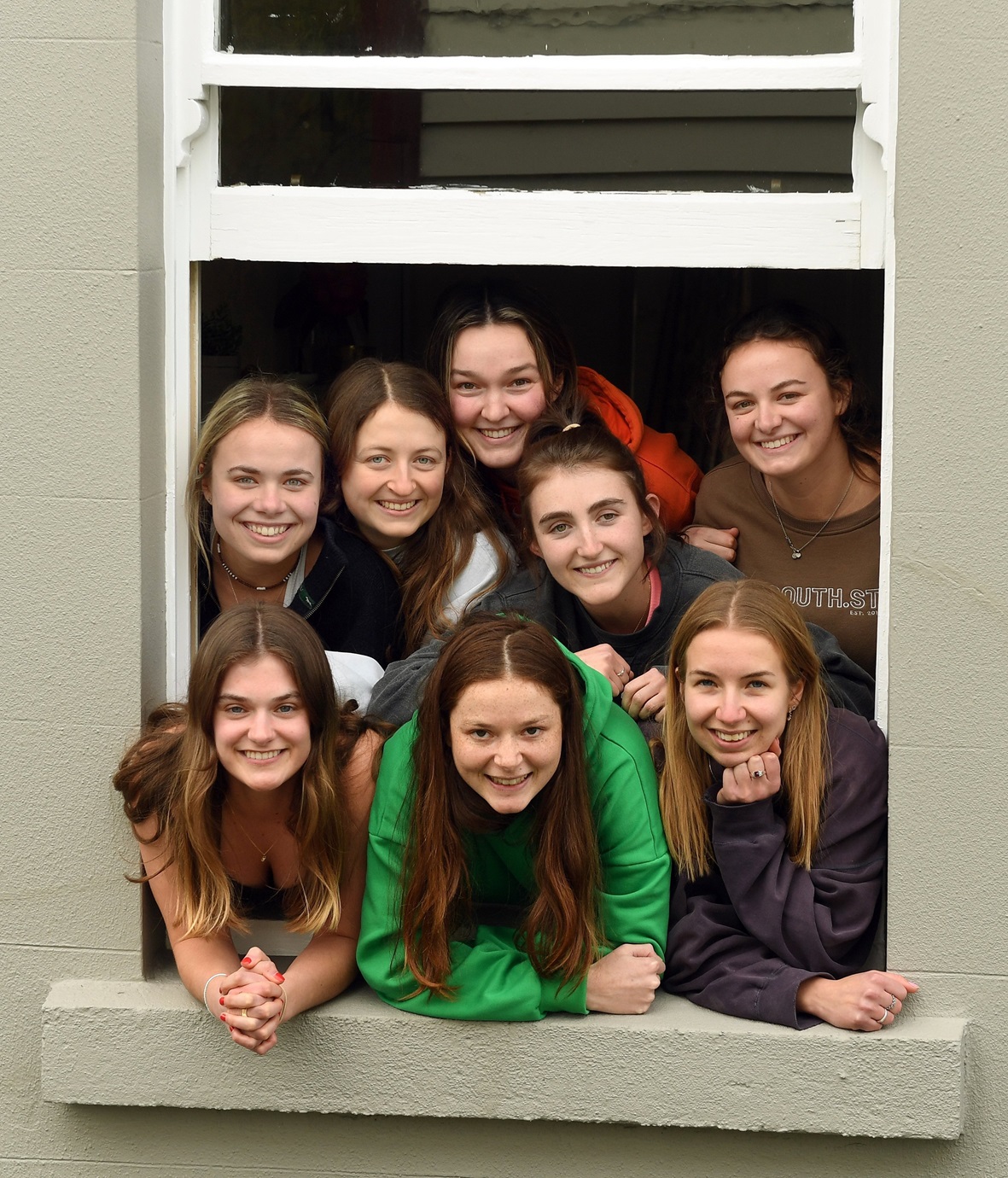
"It’s the worst thing when you've got all that time to sit there and stew on it."
Mr Macdonald said "no records had been broken" but business during the recent summer had been very good and things appeared to be turning a corner.
But if the country went into lockdown again, it would be the end for him.
"I wouldn't even try to come back. It was just too hard."
Momona sharemilker Hamish Jenkins said for him and his family, there was surprisingly very little concern about the uncharted territory of a national lockdown.
"For us, it was just business as usual.
"The cows had to be milked and the tankers kept picking our milk up, and they kept paying us for it.
"So I really couldn't stop — we just had to carry on."
He said they did not feel trapped like many families may have, because they had plenty of space to go for walks on the farm.
Not being able to socialise with friends was difficult for his wife and young daughter, but for him, it was a busy time of the year on the farm, and he had no time to socialise anyway.
"So yeah, it wasn't really a big deal to me.
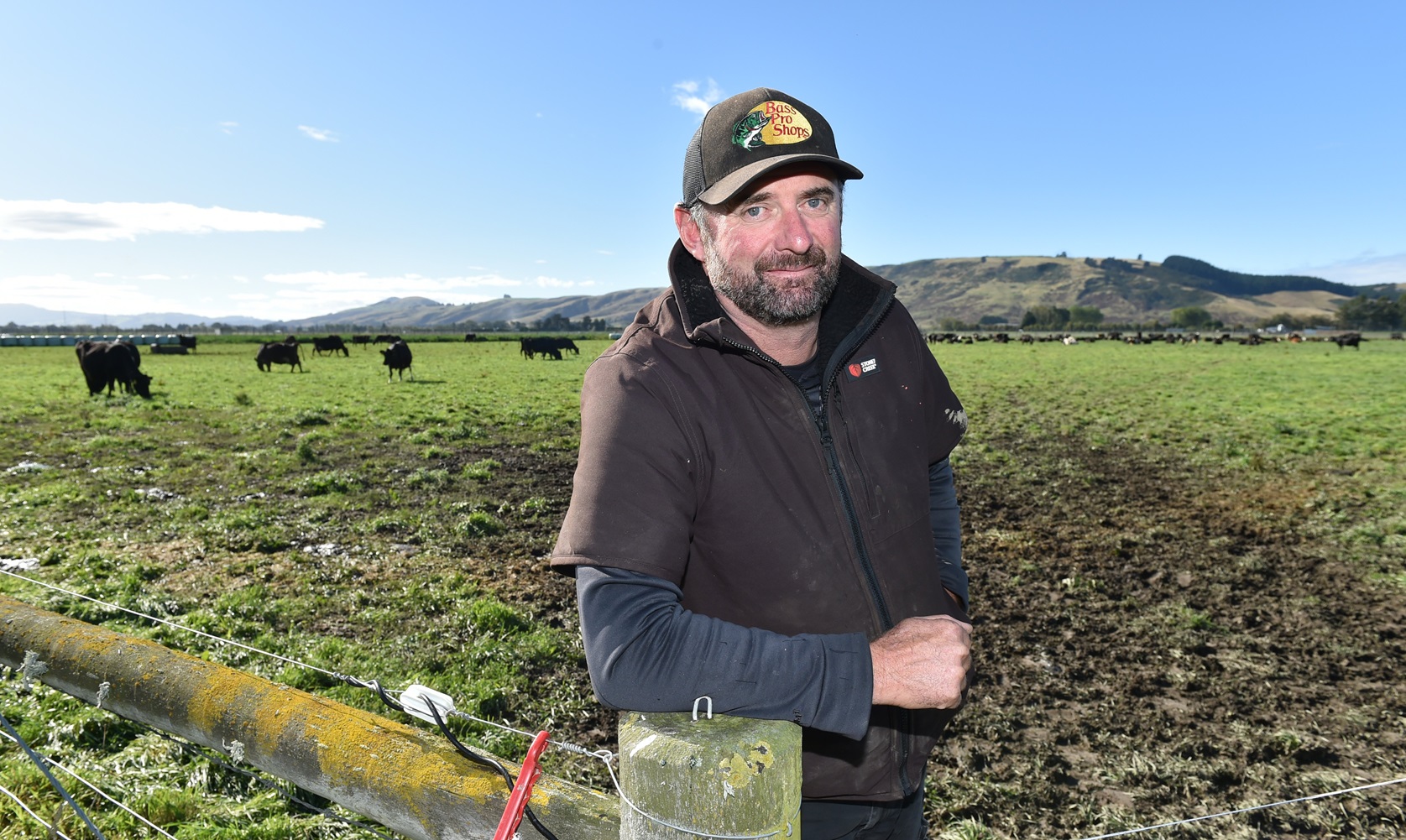
"Nothing changed.
"We just didn't leave the gate — that was the only difference."
In terms of farm work, there were jobs they would have liked to have done — like some earthworks, ditch digging and cultivation.
But they decided not to, because if they broke any equipment, there was a worry they may not be able to get replacement parts for a long time, if at all.
"We didn't want to break things, so I wouldn't assume we did lots of work.
"We just did stuff that needed to be done.
"We didn't go and do development work or anything like that.
"And there were some jobs that couldn't get done because it meant bringing other people on to the property."
Mr Jenkins said one of the disappointing elements of the lockdown was it forced them to cancel a long-awaited family trip to Thailand with friends.
But one of the highlights of the lockdown was getting to spend more time with his daughter out on the farm.
Unfortunately, he was not able to use that time to indoctrinate her into becoming a dairy farmer too.
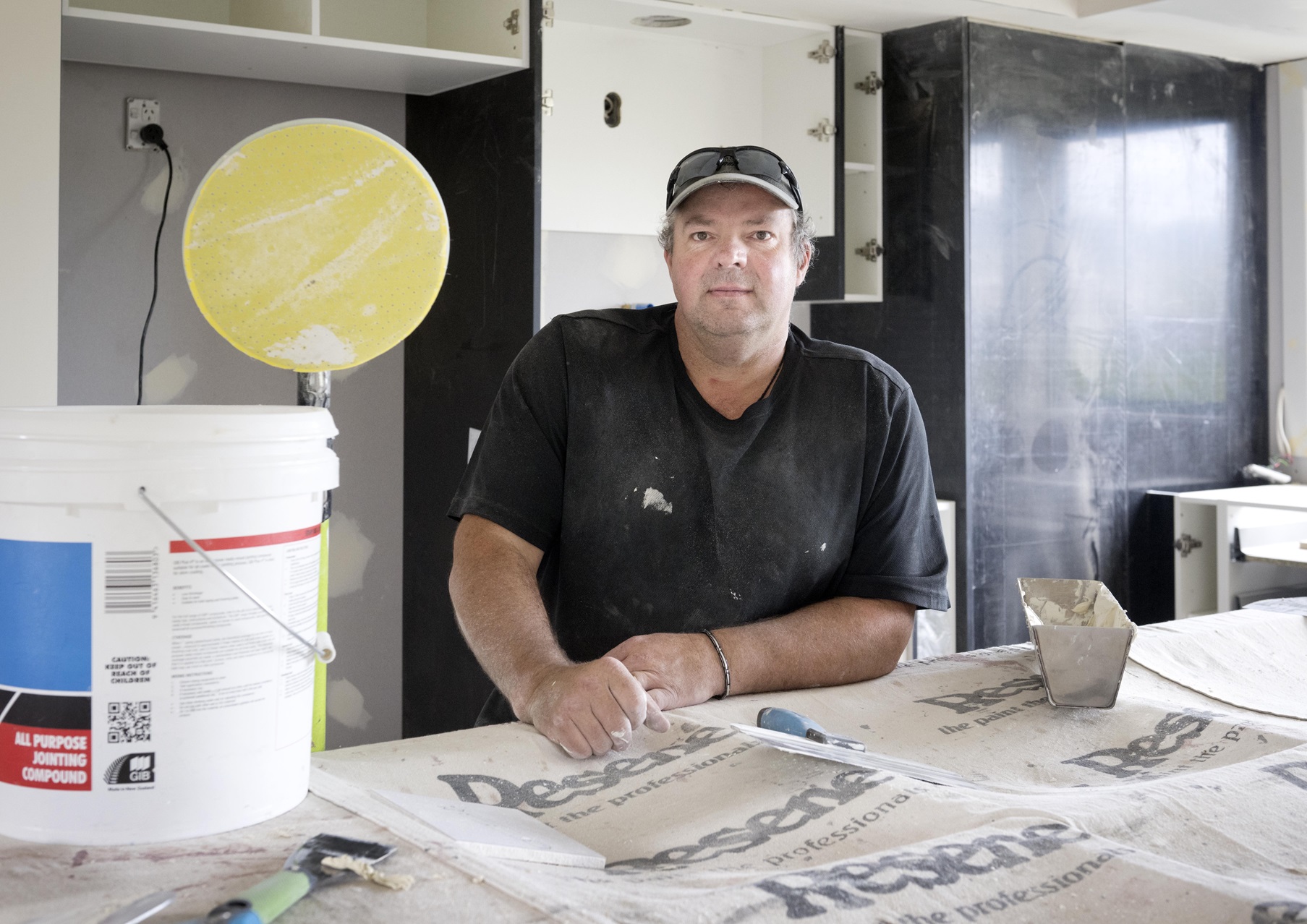
"Her social life's way more important than milking cows."
When the lockdown finally opened up again, there was a slight feeling of relief for him, but more-so for his wife and daughter.
"It just made life easier.
"You could go out, you could get takeaways — everything just got a bit easier, I guess."
Looking back, he said it was a wholesome time, filled with good hard work and more time with family.
"I guess it was just what it was.
"There was nothing you could do about it, so there was no point in moaning about it.
"You just had to get on with it."
It was the best of times, it was the worst of times.
Aaron Hodgson said it was the only way he could sum up the impacts of the lockdown on him.
Three days before the lockdown started, without notice, he was laid off by his employer where he had been a joiner and shopfitter for about 18 years.

"For me, it was pretty scary, because I've never been unemployed in my life.
"I had no idea how we were going to cope financially.
"We couldn't get any assistance from the government.
"There was no wage subsidy for me because the wage subsidy was only for people that were employed.
"My wife ended up having to try to look after me, which was one of those things that you don't like to do when you're usually the breadwinner.
"Suddenly you've got to rely on your wife having to pay some of your bills. I lost a lot of weight.
"I stopped eating because I didn’t want my wife to have to pay for it."
The other issue was, he suddenly had all this free time to ponder life’s difficult questions.
"I was a bit worried.
"I didn't know what I was going to do with the rest of my life."
Mr Hodgson said when adversity hits, people could either sink or swim.
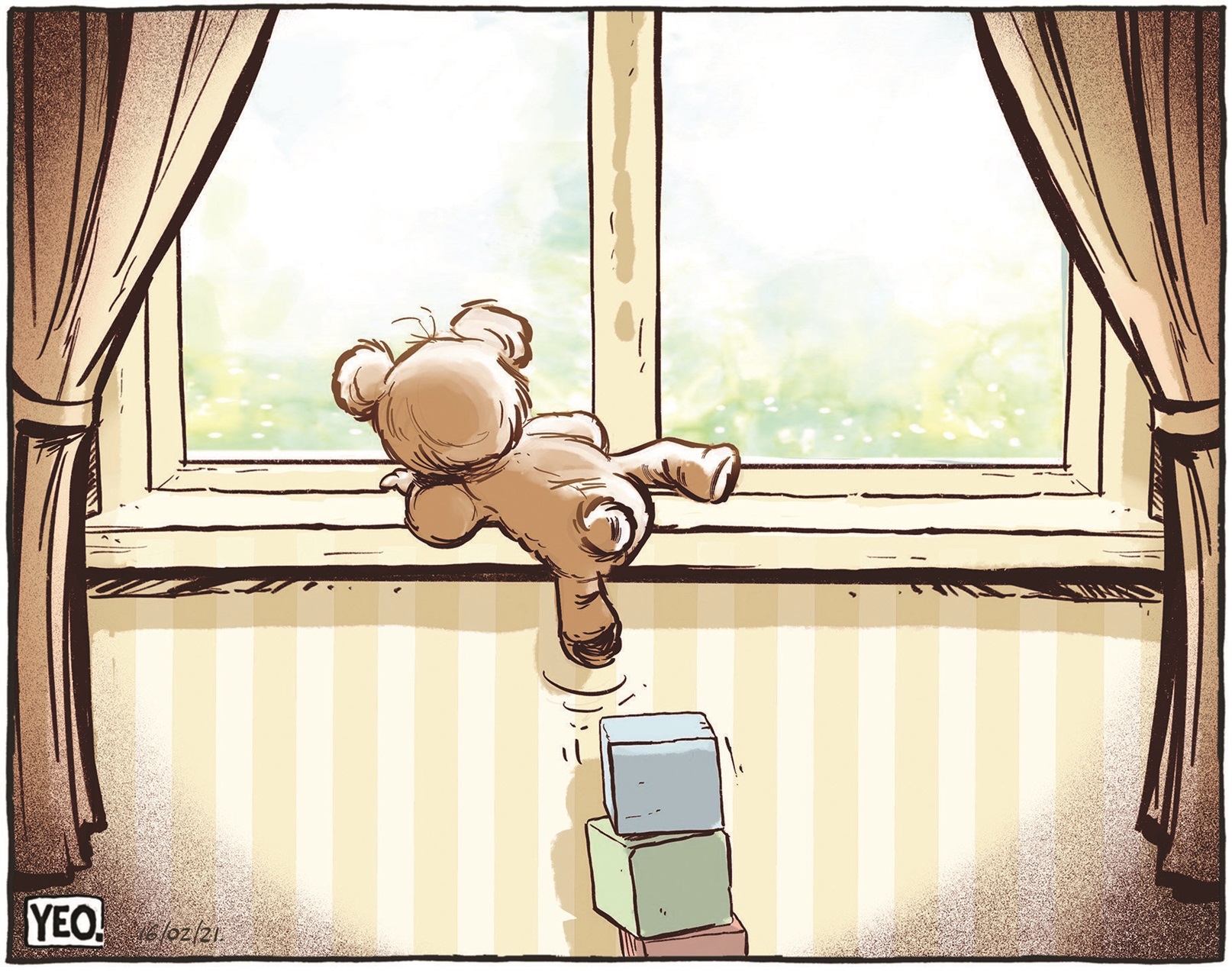
"The lockdown gave me some thinking space to work out what I wanted to do."
So instead of being quite a depressing time, it was a blessing in disguise, he said.
Also a blessing was the help he got from some former colleagues and friends, who hooked him up with some people who needed work done.
And when the lockdown ended, he was able to get straight to work.
"One of my first projects for myself was the dental school refurbishment."
He has since taken on employees.
"It was a horrible start, but it's all turned out really well for me and life's good."
Getting school children to focus in class can be challenging — so imagine how difficult it would have been to get them to focus on school work at home.
Some may say it would have been an impossible mission for a teacher.
Andersons Bay School year 1 teacher Tania Pleace said it was tricky initially, but she chose to accept the mission.
And to her surprise, her pupils thought the lockdown was such a new and unprecedented time, and the excitement of living through that turned out to be an adventure of sorts.
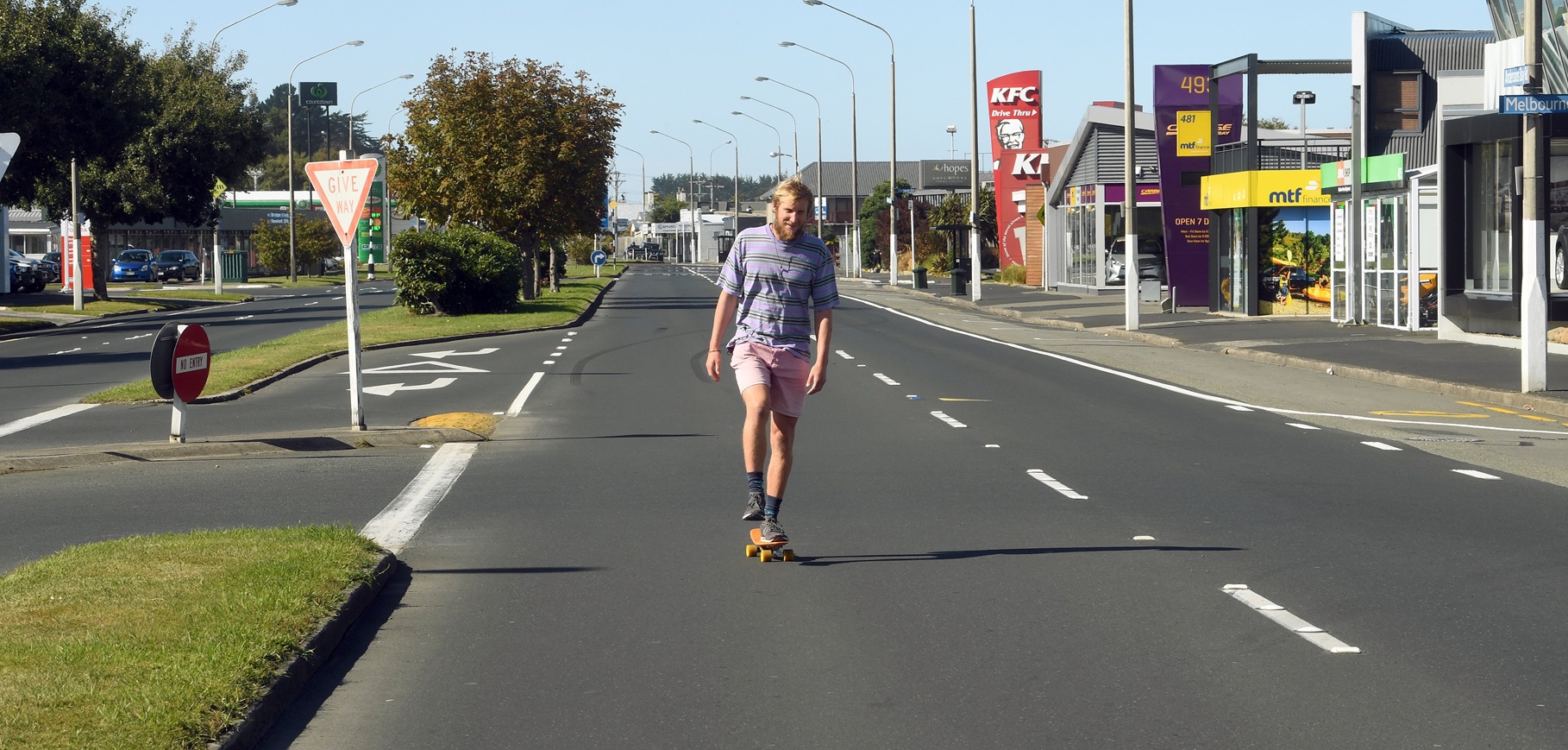
"Thank goodness for social media and computer literacy among young people.
"We would never have been able to continue [remote] classes without that.
"It was very exciting for the children because they were 5 and 6-year-olds, and they were just really excited to be able to put the lid of the laptop up and there was your teacher, and they were able to stay at home and be with their families."
She said the whole community got on board with their plan to teach the children in their homes via the internet, and the school went to great lengths to cater for all its families by ensuring everyone had access to laptops or Chromebooks.
Many people in the community became lonely during lockdown because they were not able to socialise with other people outside their house.
But an unexpected reward of the teaching method was she, as a teacher, got to speak to people all over the community each day.
The biggest bonus was being able to see a different side of her pupils’ lives.
"It was actually so exciting to be able to put ourselves into our pupils’ homes.
"And it was great too, from my perspective being a year 1 young children's teacher, we actually had our whanau and community come in on the Zooms as well.
"So we would have the children, but we would also have their parents and siblings that we tried to involve.
"It was actually really exciting to be able to connect with the whole whanau as we were delivering the learning."
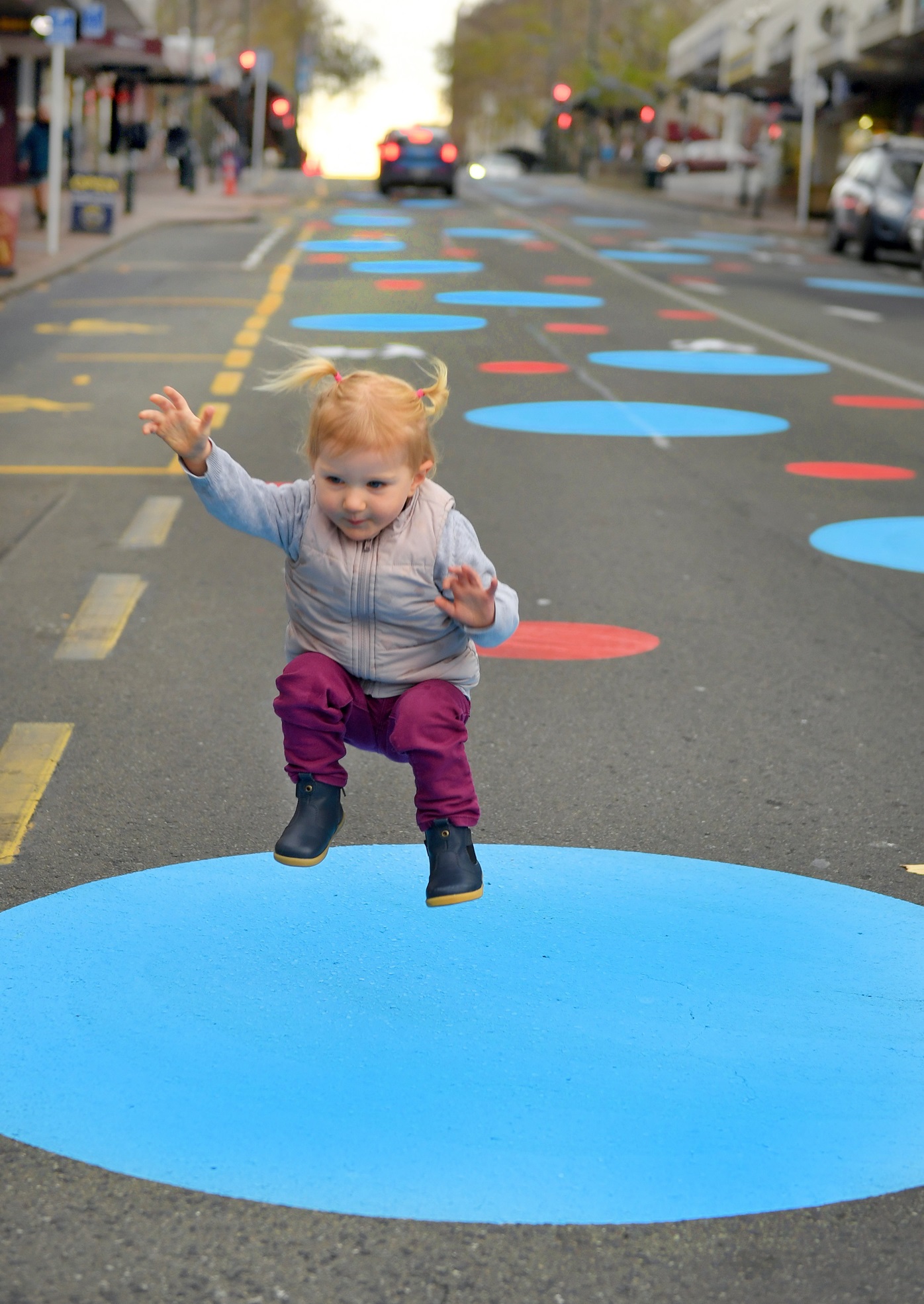
"We just reinforced that we we're taking all the safety precautions that we had been told to take, as well as more, and we did lots of talking about how we keep ourselves safe."
The children themselves proved difficult to settle on the first day back because they were so excited to see each other again, she said.
"I think we were anticipating that it was going to be an extremely exciting day.
"So we just played around that, and gave them the opportunities for the discussions and the creativeness and the drawing and things like that, that helped them reconnect.
"It helped to get it out of their system."
She said more recent talk of an increase in pupil behavioural issues being caused by the lockdown was "tricky".
"We've had discussions in our year 1 new entrant area, knowing that the children coming in are certainly children that were conceived in those Covid times.
"But I couldn't relate any challenges that there may be, to Covid.
"I couldn't say that it's because of Covid — they are just normal challenges to us that we've always had.
"We're dealing with them in the same way that we always have.
"Children were very good at adapting to change."
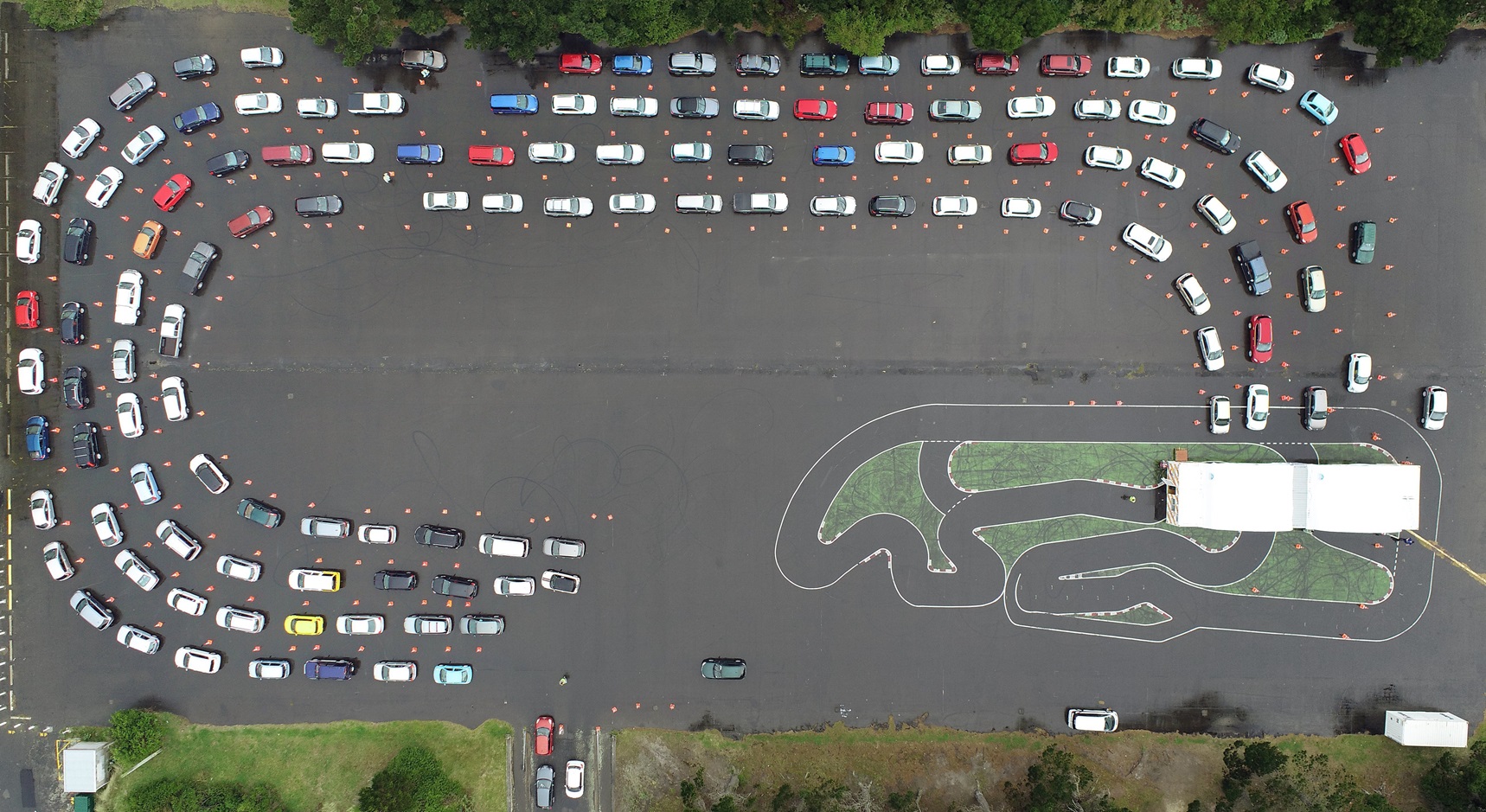
Bradford Manor Rest Home staff moved into their Dunedin workplace with their 26 vulnerable dementia patients, for the duration of the Covid-19 lockdown, in a bid to keep them free of the virus.
Manager Michelle Donaldson said they had been trying to keep ahead of the infection risk from Covid-19 from the very start, and in a bid to keep their residents safe, they closed the doors to visitors.
"You know, we talk about it quite often as a group, because most of the staff that were involved in the move-in, still work here.
"It was really, we think, quite a special time for us, because it was nice to be with the residents 24-7."
Mrs Donaldson said a by-product of the stay was that it brought the team a lot closer together and made it stronger.
"I guess the biggest thing was, we got to know our co-workers much better."
News of their commitment to protecting the health of their patients spread quickly around Otago, and she said the team was "really touched" by the support it got from the community.
"People started sending up gift baskets and donations and things like that, and one Queenstown business shouted us a weekend in Queenstown, with tickets to the Luge and all that sort of stuff.
"It was amazing."
On the down side, she said there had been many cases in other rest homes, of families not being able to visit their loved ones, particularly those that were in the last hours of their life.
"With dementia, it is sad when families can't visit, but for our actual residents, they didn't seem to mind.

"We were also lucky that we didn't lose anybody during that time.
"We had no imminent deaths in the six weeks that we were all in there.
"So we were lucky that we didn't have that situation where we had to tell somebody that they couldn't come and say goodbye."
She said it was not easy
living together in such a confined space.
The home had two empty rooms with beds which were shared by staff.
The night staff slept in there during the day, then the beds were stripped and the day staff slept in there during the night.
There was also only one shower, a separate lounge, and a carport set up with tables and chairs so the staff could get outside and get some fresh air.
Looking back, Mrs Donaldson said the only reason it worked was because most of the staff had worked together for the past 15 years and saw each other as family.
"It was just a really special time.
"And we've all said we would do it again — in a heartbeat."











